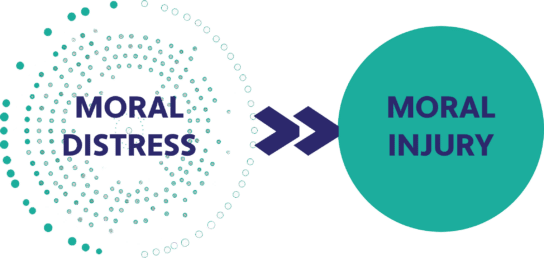Moral injury
This program focuses on a specific kind of stress injury called moral injury.2
The idea of moral injury comes from the military. Soldiers can experience negative psychological, social, and spiritual effects related to their time on duty.
But unlike post-traumatic stress disorder (PTSD), these symptoms aren’t always a result of direct trauma. They seem to come from moral challenges, such as being unable to protect civilians, having to witness mass suffering, or being endangered due to lack of proper resources.
A moral injury is the psychological, emotional, social, and spiritual impairment that results from exposure to events that violate one’s held morals, ethics, or values.
Moral distress
Like moral injury, moral distress is an idea with a lot of history. In 1984, a researcher named Andrew Jameton3 noticed distress in nurses who couldn’t do as much as they wished to do for their patients.
Moral distress is a negative stress response that arises when there is interference with one’s moral agency. Moral distress may occur in a situation in which one’s personal morals, ethics, values, or beliefs are compromised.

You can think about moral injury and moral distress on a continuum:
- Moral distress is what you immediately feel when confronted with a moral dilemma.
- Researchers have proposed that if moral distress is left unresolved for long enough time, then it may develop into a moral injury.4
